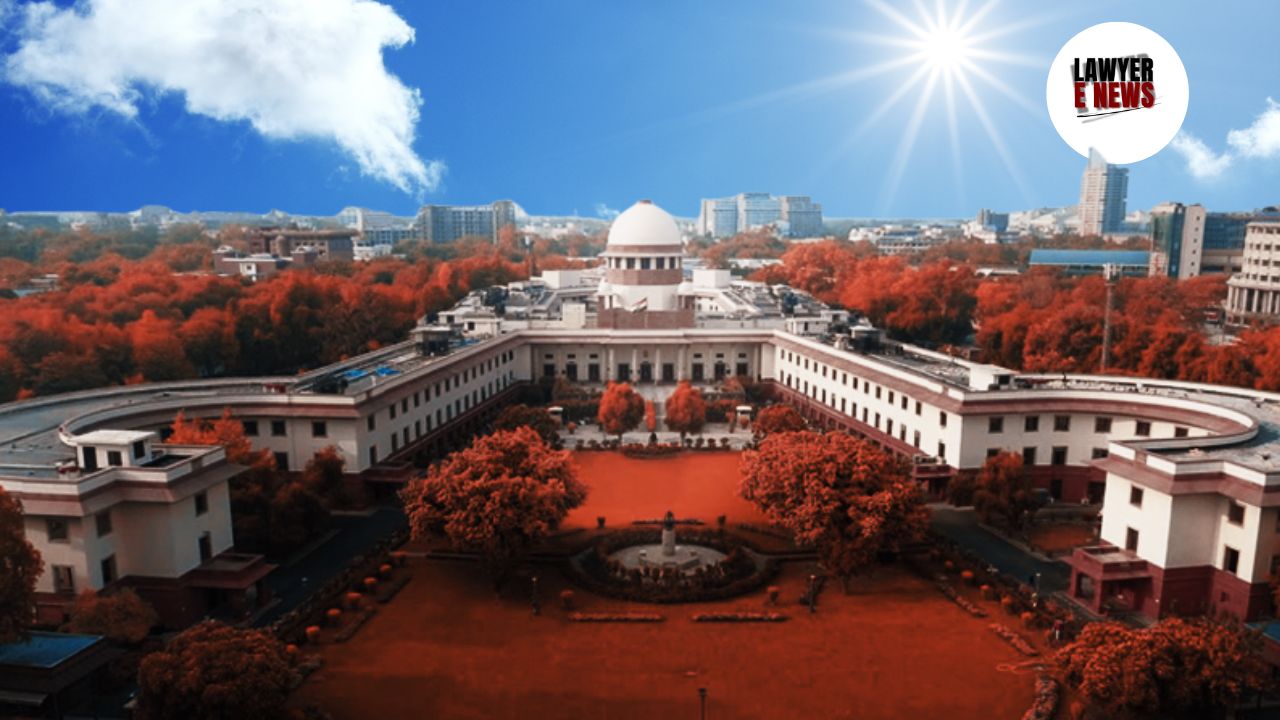-
by Admin
15 February 2026 5:35 AM



"Ten Other Accused Granted Bail: Trial Likely to be Lengthy Due to 92 Witnesses," Says Supreme Court , in Sunil v. State of Rajasthan & Anr., granted bail to the appellant, Sunil, who had been charged with multiple serious offenses under the Indian Penal Code (IPC) and the Arms Act. The Court ruled in favor of bail, citing the prolonged custody of the appellant and parity with ten co-accused who had already been granted bail. The trial, expected to be lengthy due to the involvement of numerous witnesses, was another factor considered in the decision.
The case arose from an FIR registered on January 16, 2023, against the appellant and 33 others, accusing them of serious charges including murder (Section 302 of IPC), attempt to murder (Section 307), rioting (Sections 147, 148, 149), and criminal conspiracy (Section 120-B). The charges stem from a violent altercation where the appellant was alleged to have fired at one Babu Lal. Although the appellant was initially implicated for using a firearm, the statement of the injured party, Babu Lal, did not directly name the appellant as the shooter. Furthermore, it was clarified that Sunil was armed with a stick, not a pistol.
Sunil had been in custody since August 27, 2023, and his earlier request for bail was rejected by the Rajasthan High Court on March 6, 2024, prompting this appeal.
The key legal issue was whether the appellant, Sunil, should be granted bail on the grounds of parity with ten co-accused, who had already been released, and whether his prolonged custody without imminent trial warranted such relief.
Parity with Co-Accused: The appellant’s counsel argued that ten co-accused had been granted bail, and on the principle of parity, Sunil deserved similar consideration. The Court took note of the fact that several co-accused, some with lesser involvement, had been released.
Prolonged Custody: The appellant’s prolonged detention of over a year, coupled with the fact that the trial involved 92 witnesses, led the Court to conclude that the trial would likely be a long-drawn affair.
The respondent State opposed the bail, highlighting that Sunil had absconded for seven months and had criminal antecedents. However, the Court observed that absconding alone was not sufficient to deny bail, particularly when the trial was yet to begin in earnest and several co-accused were already out on bail.
In its ruling, the Supreme Court noted that the charges had already been framed, and the trial was likely to be protracted given the large number of accused (34) and witnesses (92). Justice B.V. Nagarathna and Justice Nongmeikapam Kotiswar Singh underscored the importance of not unnecessarily prolonging pre-trial detention when co-accused were already on bail and there was no substantial difference in their roles.
The Court also addressed the respondent’s argument regarding Sunil's absconding, noting that while absconding was a factor to consider, it could not be the sole basis for denying bail. The Court held:
"The fact that ten other co-accused are already out on bail and that the trial is likely to be long due to the number of accused and witnesses justifies the appellant's request for bail." [Para 6]
Accordingly, the Court allowed the appeal and directed that the appellant be produced before the trial court for release on bail, subject to conditions that would ensure his cooperation during the trial. The Court further warned that any violation of the bail conditions would lead to immediate cancellation.
The Supreme Court granted bail to the appellant, Sunil, considering the prolonged custody, parity with co-accused, and the protracted nature of the trial. The Court’s decision reflects a balance between the accused's right to liberty and the need to ensure cooperation with the legal process. The trial court was directed to impose suitable conditions to safeguard the integrity of the trial process.
Date of Decision: September 3, 2024
Sunil v. State of Rajasthan & Anr.
